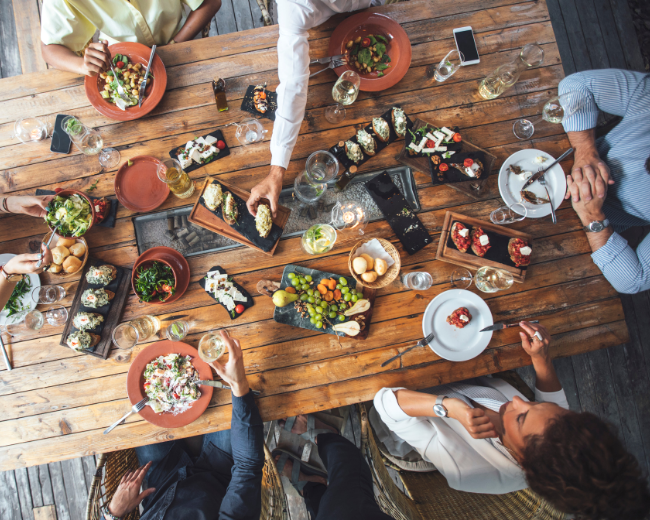TIAC Talk Articles > Food, Tourism & Climate Action
 |
This year TIAC along with sustainability experts, Synergy-Corporate Sustainability Management, will bring you a series of articles and actionable insights on tourism & sustainability issues and trends impacting our industry.
The third one in this series:
Food, Tourism & Climate Action
Author: Kayli Anderson, Managing Partner, Synergy Enterprises
Culinary tourism is on the rise and while great food may not be the main reason people travel, it plays into how individuals and event planners select the destination for their next conference or vacation. The same can now be said for sustainable travel. Sustainability as a travel motivator is increasing and travellers are opting for sustainable options.
A key message often missing from the climate crisis conversation is that reversing global warming is possible. Scientists have identified and quantified the 100 top solutions to reversing global warming and called it Project Drawdown. Solutions include everything from wind and solar to educating girls and ocean farming. Of the top 20 solutions for reversing global warming, eight are food related. Reducing food waste is ranked as the third most effective solution and a plant rich diet is next in line at number four.
“Canadians waste more than 11 million metric tonnes of food every year — worth nearly $50 billion.” By making small changes to purchasing practices and focusing on reducing food waste, tourism businesses are cutting carbon and reducing costs.
CASE STUDY: Food Waste – Fairmont Hotels & Resorts Excerpt from the IMPACT Conference Proceedings Paper
Fairmont Hotels and Resorts has set a goal to reduce packaging and food waste by 30% by 2020. In restaurants, 90% of food waste comes from preparation and portion sizes. To achieve their goal, the hotels are working with event planners and clients to mitigate overproduction when planning buffets, focusing on cross utilization and ensuring every part of the food is used. Each hotel audits their food waste monthly to look for further reductions and cost savings. Other initiatives include working with local organic farmers to purchase and use unattractive vegetables, offering only free run and organic eggs and purchasing local and seasonal produce. These simple changes brought about a 57% average reduction in food waste across Fairmont’s five hotels with cost savings estimated around $50,000 per site, annually.
We know that addressing food waste and designing a sustainable menu can make a huge impact. Here are some ideas to get you started:
- Conduct a food waste audit of your kitchen to determine where the main sources of waste are coming from
- Incorporate low-carbon proteins and local, plant-rich dishes into your menu
- Host a food rescue event (chef challenge)
- Source available ingredients from local farms
- Create a kitchen challenge to find unique ways to use food waste such as carrot tops, leek leaves and other ingredients to incorporate into your menu
Join the Movement:
- Waste Reduction Week Oct 21- 27th, 2020
- WorldChefs Food Waste Challenge
Read up on the National Zero Waste Council’s Study on National Food Waste.
